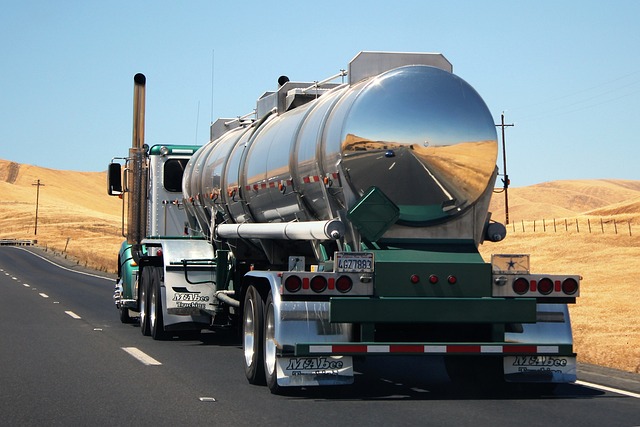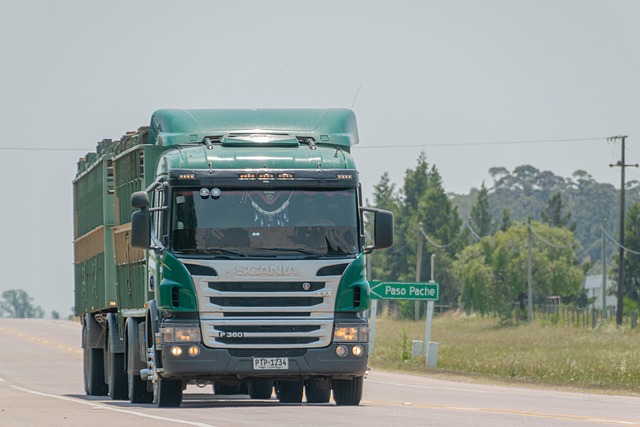Small trucking companies face unique risks like higher cargo damage, mechanical downtime, and increased accident probabilities due to fluctuating work volumes and limited resources. Customized insurance solutions, featuring tailored cargo insurance, flexible per-mile pricing, and specific route/cargo type coverage, empower these businesses to navigate these challenges effectively. Personalized policies offer financial protection against theft, damage, loss, while optimized operational budgets allow small fleets to thrive with confidence.
In today’s competitive trucking industry, managing operational risks is paramount for small fleet owners. Expert guidance on customizing coverage ensures that unique challenges are addressed effectively. This article delves into the critical aspects of understanding and mitigating risks specific to small trucking operations. From identifying common hazards to exploring specialized options like cargo insurance and flexible plans, you’ll discover how personalized policies can enhance risk management and operational efficiency. Implement these strategies for optimal small fleet insurance solutions and protect your trucking business.
Understanding Unique Operational Risks Facing Small Trucking Companies

Small trucking companies often face unique operational risks that set them apart from larger fleets. These include higher exposure to cargo damage or loss due to limited resources for specialized handling, increased vulnerability to mechanical breakdowns leading to costly downtime, and a greater risk of accidents due to driver fatigue or inexperienced personnel. Additionally, small fleet owners may struggle with fluctuating work volumes, requiring flexible insurance plans that can scale with their business needs.
Customized insurance solutions are crucial for protecting these trucking businesses. Personalized trucking policies can include tailored cargo insurance to cover the value of goods transported, ensuring financial protection against theft, damage, or loss. Flexible trucking insurance plans that offer per-mile pricing or coverage based on specific routes and cargo types allow small companies to pay for exactly what they need, optimizing their operational budget. Such measures empower these businesses to navigate the challenges of their niche with confidence, knowing their unique risks are appropriately addressed.
– Identifying common hazards and potential risks specific to small trucking operations

Small trucking operations face a unique set of challenges when it comes to insurance coverage. Identifying potential risks is the first step in customizing insurance plans for these businesses. Common hazards include accidents, cargo damage or loss, and on-the-job injuries to drivers and other personnel. Additionally, small fleets may operate in diverse environments, navigating through urban centers, rural roads, and challenging weather conditions, each presenting distinct safety concerns.
Tailored trucking coverage recognizes these unique risks. Personalized trucking policies can include specific protections for cargo insurance, liability coverage tailored to the fleet’s size and operations, and comprehensive insurance solutions that address the needs of small businesses. Flexible trucking insurance plans allow operators to choose the level of coverage they require, ensuring they’re not over- or under-insured. This approach ensures that small trucking companies receive protection that aligns with their specific operational risks.
– The importance of recognizing industry-specific challenges

In the dynamic landscape of trucking, where every operation is unique, recognizing industry-specific challenges is paramount when crafting customized insurance solutions for small trucking companies. These businesses face distinct risks that extend beyond general liability; they include cargo damage, driver health and safety, and regulatory compliance. Traditional insurance plans often fail to address these specialized needs adequately, leaving small fleets vulnerable to significant financial losses.
By understanding the nuances of the trucking industry, expert insurers can develop tailored trucking coverage that mirrors the specific operational risks encountered by these companies. This involves creating personalized trucking policies that encompass cargo insurance, liability protection for various scenarios, and flexible plans that adapt to fluctuating business demands. Such customized insurance solutions ensure that small fleet owners have comprehensive protection, enabling them to navigate the industry’s challenges with confidence.
Benefits of Customized Insurance Solutions for Small Fleet Owners

Small fleet owners often face unique operational risks that standard insurance policies might not adequately address. This is where customized insurance solutions shine as a powerful tool. By tailoring trucking coverage to fit their specific needs, small trucking companies can gain significant advantages. For instance, personalized trucking policies can provide comprehensive protection for both the business and its valuable cargo, ensuring peace of mind during operations.
Tailored trucking coverage allows owners to include specialized risks such as liability for on-the-road incidents, damage to vehicles, and cargo insurance. Flexible trucking insurance plans offer the added benefit of scalability—owners can adjust their coverage as their businesses grow or as new risks emerge. This proactive approach to risk management not only protects small fleet operations but also fosters their long-term sustainability and success in a competitive market.
Small trucking companies face distinct operational risks that require expert guidance to mitigate. By understanding common hazards and industry-specific challenges, fleet owners can tailor their insurance coverage to protect against unique risks. Customized insurance solutions offer the flexibility needed to adapt to fluctuating needs, ensuring comprehensive trucking business protection. Personalized policies for small fleets, including cargo insurance, provide peace of mind and safeguard against potential losses, enabling these businesses to thrive in a competitive market.
